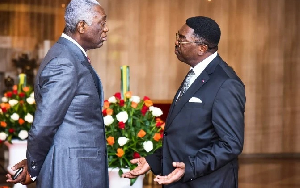Forty Cameroonian press journalists and local agencies, correspondents and international newspapers grouped in the association named Economic Press of Cameroon (Press Eco) were trained from 21 to 22 August 2014 in Kribi on the mechanisms of prices regulation of petroleum products in the country.
The training session was organized by the stabilization office in oil prices (CSPH), on the general theme, "Challenges and Issues in the prices regulation of petroleum products in Cameroon."
The training was organized around presentations on CSPH missions, the downstream petroleum sector in Cameroon, the international system of marketing of petroleum products, the current situation and prospects of the Cameroonian oil market, mechanisms of pricing of petroleum products, machinery and weight of subsidizing petroleum products in Cameroon, the transportation equalization and oil impact in the economy in general.
According to François Bamboo, President of Eco Press, this overview of the features of the downstream petroleum sector, sometimes unknown to media professionals, will allow them have a better understanding of some decisions as the latest one in June 30, 2014 by the Cameroonian government to proceed, as of July 1, of an upward revision in prices of petroleum products at the pump (except kerosene).
According to its president, Press Eco is a grouping of media professionals in Cameroon dealing primarily with economic news, and is working to improve the Economic information in Cameroon, through capacity reinforcement of its members on major issues of national and international business.
Before the CSPH, the business press in Cameroon has already received two training sessions offered by the General Customs Directorate (protection of national economic space and the competitiveness of the port of Douala), a session with the General Treasury (new financing mechanisms of the state budget), and one with the Department of Economic Affairs (mechanism of development of the balance of payments), and with the local delegation of the European Union (on the EPA)
Infos Business of Tuesday, 26 August 2014
Source: investiraucameroun.com













